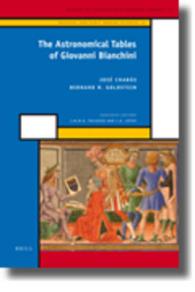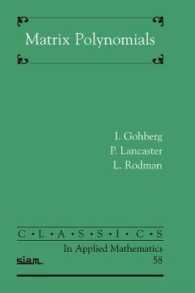- ホーム
- > 洋書
- > 英文書
- > Politics / International Relations
Full Description
For over 50 years, evaluators have used theories of change to articulate the causal logic underpinning how an intervention is intended to bring about a desired change. From its origins in programme evaluation, the approach has been adopted more widely for purposes from program design to program management. As theories of change continue to be used for multiple purposes, it is an opportune moment for the evaluation community—where the approach originated—to provide their perspective on the strengths and limitations of the approach and its future directions. To provide these perspectives, we asked nearly 30 of the world's leading evaluators and programme theorists to provide a short essay on the past, present, and future of theories of change. This book presents their insights organized into five main themes: the use of theories of change in broader public policy contexts; using theories of change to establish causality; developing theories of change reflective of multiple stakeholder perspectives; using theories of change to understand wider societal change processes; and applying theories of change approaches for multiple purposes. By sharing these diverse perspectives, the book aims to both provide evaluators and emerging programme theorists with critical perspectives to inform future practice.
The Open Access version of this book, available at www.taylorfrancis.com, has been made available under a Creative Commons Attribution-Non Commercial-No Derivatives (CC-BY-NC-ND) 4.0 license.
Contents
Foreword
Emily Gates and Kathy Chau Rohn
Part 1. Introduction
Andrew Koleros, Marie-Hélène Adrien, and Tony Tyrrell
Part 2. Considerations in Using Theories of Change to Establish Causality
2. Theories of Change between Critical Thinking and Social Practices
Peter Dahler-Larsen
3. Setting the Stage for Contribution Claims
Thomas Delahais
4. Using Theories of Change to Assess Causality in a Policy Change Context
Carlisle Levine
5. How Deep is your Ontology? How a Little Ontological Thinking Can Strengthen How Evaluators Use Theories of Change
Tom Ling
6. My Perspective on Theories of Change
Markus Palenberg
Part 3. Using Theories of Change to Understand Wider Social Change Processes
7. Theory of Change for Sustainable Business
Jens Anderson
8. Upcycling TOC for Impact Investment and Early-Stage Ventures
Penny Hawkins and Zazie Tolmer
9. Strategy-level Theories of Change Require a Focus on Systems Change: An Actor-Based Approach can Help
Andrew Koleros
10. Evaluating the use of Artificial Intelligence and Big Data (ai/bd) in Policy Making: Unpacking Black-Boxes and Testing White-Boxes
Frans Leeuw
11. Developing, Representing and Using Theories of Change for Interventions in Complex Systems Patricia Rogers
Part 4. Adapting Theories of Change for Use in Broader Public Policy Contexts
12. Theories of Change in Evaluation of Local Government Reforms
Kurt Houlberg and Olaf Rieper
13. Theories-of-Change and the Evaluation of Sustainable Impact: Moving beyond Simplicity in Development Cooperation
Peter van der Knapp
14. Use of Theory of Change as a Management Tool for Government Multi-year Development Plans: The Case of Brazil's Federal PPA
Lycia Lima and Marina Lafer
15. Theories of Change in Complex Macro Public Sector Planning Settings in Africa: How Useful are They?
Candice Morkel
16. Simple Heuristics for Drafting Theories of Change: A Case of Behavioral Insights into Food Waste
Karol Olejniczak and Igor Lyubashenko
Part 5. Applying Theories of Change Approaches for Multiple Purposes
17. The Law of the Instrument: Would you Rather be a Theory or a Nail?
Gordon Freer
18. 3ie: A 'Balloon-Squeezing' Approach to the Theory of Change
Marie Gaarder
19. Integrating Theories of Change in Program Management and Delivery
Mark Oldenbeuving
20. Theories of Change: Who Needs Them? or: What Evaluators Can Learn from Opera
Burt Perrin
21. How to Ensure No-one Uses Your Theory of Change: Lessons from the Front Lines of ToC Facilitation and Possibilities for Renewal
Mary Tangelder
22. Why do we have ToCs of the Program Intervention but not of the Intervention that is the Evaluation?
Bob Williams
Part 6. Developing Theories of Change Reflective of Multiple Stakeholder Perspectives
23. Participatory Explorations of Alternative Futures: Using Narrative Theories of Change
Rick Davies, Lara Mani and Tom Hobson
24. Constructing a Living Theory of Change in Fragile Contexts: Grounded on Context, Problem and Evidence
Hur Hassnain
25. Flipping the Script on Program Theories: Advancing Towards Transformative Theories of Change
Sebastian Lemire
26. Theory Based Evaluation Approaches Can Enable Online Project Success
Steve Montague, Heloise Emdon and Eva Grabinski
27. Theory of Change as a Tool for Tracking Intensive Family Program Developments in Whitetown
Jane Mulcahey, Catherine Naughton and Sean Redmond
Conclusions
Andrew Koleros, Marie-Hélène Adrien, and Tony Tyrrell








